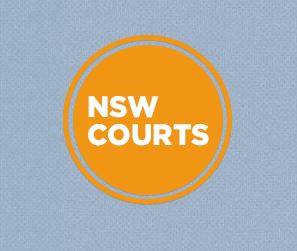By Paul Gregoire and Ugur Nedim
According to section 302(1)(f) of the Legal Profession Uniform Law (NSW), if a lawyer is found guilty of “unsatisfactory professional conduct or professional misconduct”, the NSW Civil and Administrative Tribunal (NCAT) can recommend that their name be removed from the roll of lawyers.
The NSW Supreme Court maintains the roll of lawyers qualified to practise in this state. It contains their names and other relevant details. If a lawyer is subsequently struck off the roll, they can no longer practise by giving legal advice, attending courts to run cases or performing other legal work.
Following an NCAT recommendation, the Supreme Court will proceed to remove the lawyer’s name from the roll if no appeal is lodged. This statutory process does nothing to affect the Supreme Court’s ultimate responsibility for controlling and disciplining legal professionals within its jurisdiction.
The proceedings that involve the striking of a lawyer’s name from the roll are dealt with by the NSW Court of Appeal (NSWCA). However, this doesn’t mean that a hearing regarding the removal of a lawyer’s name is in the nature of an appeal.
So, when the NSWCA met on 9 July 2020 to decide whether Sydney-based lawyer Seog Won Yoon should be struck off the local roll, there was no reason for the appeals court to rehash the NCAT decision, especially as the legal professional in question failed to show up.
The crimes of a lawyer
Admitted to practise law in December 2007, former solicitor Mr Yoon was the principal at boutique firm El Khan Legal between March 2010 and June 2015, at which point he became the legal practice director at incorporated law firm Boep Jeong Pty Ltd.
The Council of the Law Society of NSW commenced proceedings against Mr Yoon in relation to his conduct while acting on behalf of Korea Deposit Insurance Corporation (KDIC): a South Korean business that deals with collecting debts in relation to bankruptcies.
Mr Yoon’s actions came into question when it surfaced that he’d been enforcing three foreign judgements against local individuals. The former lawyer admitted during legal proceedings that he’d entered into cost agreements in relation to these matters, whereby his fees were to be calculated on a contingency basis, also known as a ‘no win, no fee’ basis.
Section 325 of the Legal Profession Act (2004) (NSW) (the Act) prohibits law practices from entering into contingency fees which are based on receiving a percentage of an amount recovered for a client. The maximum penalty for this offence is an $11,000 fine, and breaching it can result in disciplinary action being taken.
The Legal Profession Act was repealed and replaced by the Legal Profession Uniform Law on 1 July 2015. However, the new legislation provides that an offence that was committed prior to its enactment can be dealt with under the earlier legislation.
Untrustworthy money
It was found that Mr Yoon hadn’t been operating a trust account for any of the firms he’d been overseeing. This is a strict requirement when it comes to receiving money before the legal work on a case is undertaken.
A trust account is one in which clients enter funds, which are then held on their behalf until work is undertaken and an invoice is issued to a client. Law firms are not permitted to withdraw funds from this account until at least 7 days after the invoice is issued, and cannot withdrawn fund if a client objects to the withdrawal, until the dispute is settled.
The former Sydney solicitor was found to have received money on behalf of KDIC and deposited it into a regular bank account held by Boep Jeong. From there, the lawyer went on to use these funds for purposes other than those set out by the client.
In relation to these matters, the NCAT found Yoon had breached section 254 of the Legal Profession Act, which stipulates that money held on trust for a client must be deposited into a trust account. Breaching this rule can result in a fine of $11,000, as well as disciplinary action.
Mr Yoon was also found to have contravened the requirements of section 255 of the Act, which require that trust money be held in z trust account on behalf of the client and disbursed only at their direction. Breaching this law makes an individual liable for a fine of $5,500, as well as the possibility of disciplinary action.
The former lawyer further breached section 260 of the Act, which prohibits the intermixing of trust money with other money. He further failed to observe the provisions of section 264, which stipulate that a law firm must keep trust fund records. Both of these offences carry an $11,000 penalty.
The opinion of the Society
The Council of the NSW Law Society put it to the NSWCA that Mr Yoon’s breaches of trust money and cost agreement regulations were demonstrative of his lack of understanding of his obligations under NSW laws that govern the legal profession.
And the former lawyer’s claim that his misappropriation of trust funds was done under a verbal agreement with his client were not accepted by the tribunal, and rightly so. The Law Society of NSW asserted that this was a serious breach, especially as the amount in question was substantial.
The Law Society further set out that the evidence given by Yoon during the tribunal hearings failed to address its concerns, but, rather, sought to provide an explanation or an excuse for his misconduct.
The ruling of the court
In their full findings, NSWCA Justices Andrew Bell, Julie Ward and Richard White noted that Mr Yoon had been found “guilty of professional misconduct as identified in the Tribunal’s reasons” and there had been no challenge to that finding.
Their Honours set out that the conduct that Yoon had been found guilty of, “in particular the misappropriation of trust moneys”, were serious matters. And they made certain that it is the court’s duty to protect the public from not only Yoon, but other legal practitioners like him.
And in order to deter other NSW lawyers from acting in a similar manner, it’s important that appropriate sanctions were imposed.
“It is clear that Mr Yoon is not a fit and proper person to be an officer of the Supreme Court and that it is in the interest of the public and the administration of justice that his name be removed from the roll maintained by the Supreme Court,” their Honours ruled.
And on 14 July this year, the three justice bench of the NSWCCA ordered that Mr Yoon’s name be struck off the roll of the NSW Supreme Court and that he pay the court costs of the Law Society of NSW.












Interesting how they reprimand one lawyer, yet allow others to do exactly the same as Mr Toon in Dceased Estate Equity Division. Hundreds of lawyers are robbing deceased estates and allowed to do this, and even close investigations before they even commence. The Law Commissioners Office showing bias favouritism to specific lawyers breaching laws, as long as specific authorities personally benefit – total hypocrisy.
Trust account monies